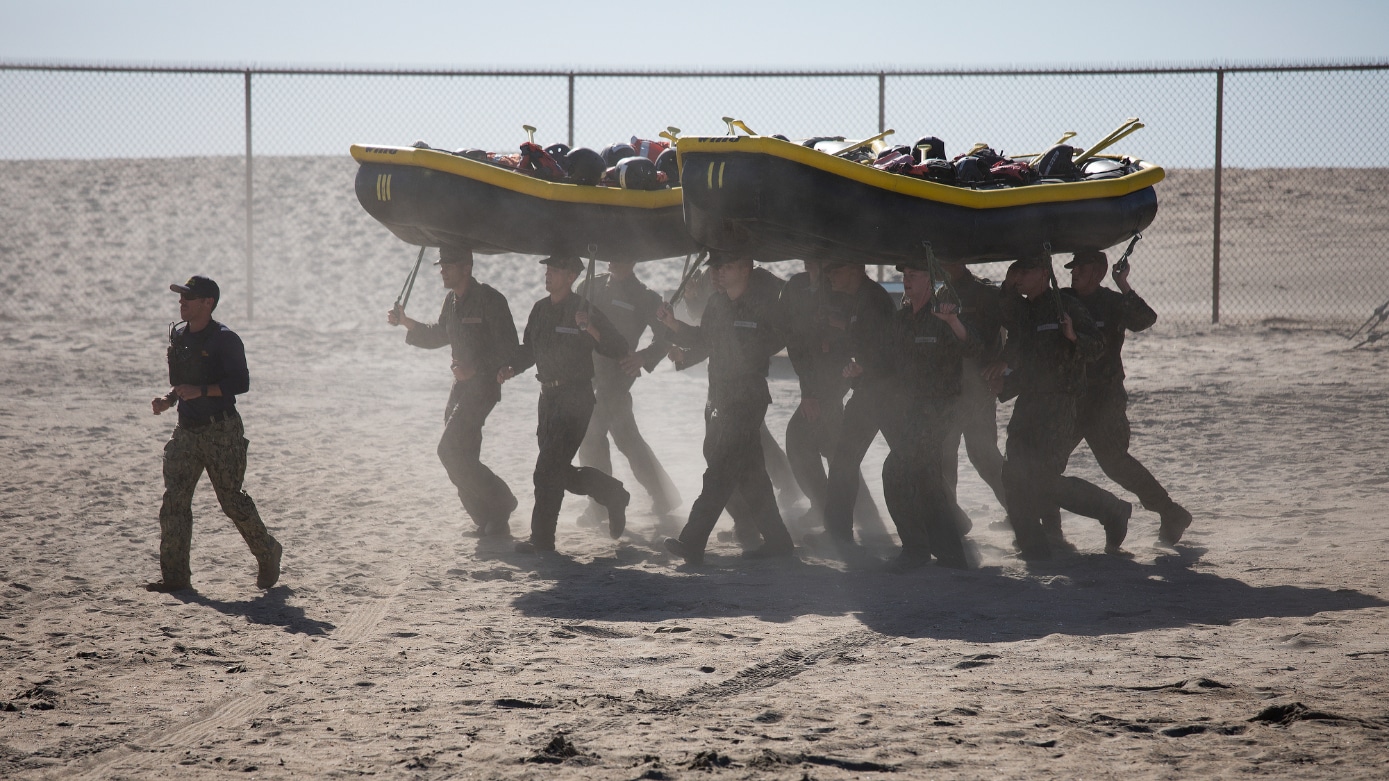A new report from the Department of Defense Inspector General (DOD IG), released Thursday, highlights safety concerns in the Navy SEAL training program, calling for clearer guidelines on sleep deprivation, performance-enhancing drugs, and medical staffing. These recommendations follow the death of Navy SEAL recruit Kyle Mullen during the special force’s “Hell Week” training in 2022. The IG’s investigation found that while some improvements have been made since Mullen’s death, significant gaps remain.
The report raises issues with the Navy’s use of sleep deprivation, a core element of “Hell Week,” where recruits endure more than 100 hours of intensive training with very limited sleep. The IG criticized the lack of consistent policies on how sleep deprivation is applied, finding no clear guidelines to determine its purpose, duration, or safety limits. Trainers were also unable to provide specific reasons for the timing and length of sleep breaks, leading the IG to recommend that the Navy develop a formal policy governing its use to enhance recruit safety.
Another focus of the IG report is the use of performance-enhancing drugs (PEDs) among recruits, a concern that surfaced during investigations into Mullen’s death. The IG found that the DOD lacks a standard definition for PEDs in training, creating uncertainty over what constitutes prohibited substances. To address this, the IG recommended that the Navy and DOD establish a consistent definition and policy on PEDs, along with random and unit-wide drug testing protocols, to better monitor use among recruits.
The report also addresses medical support levels during the Navy SEAL training. Though the Navy has made several updates to improve medical readiness since Mullen’s death—including advanced cardiology screenings and preventive treatments for pneumonia—the IG emphasized that medical staffing during “Hell Week” remains insufficient. Due to the extreme physical and mental demands of the training, the IG suggested adding more medical personnel to support both recruits and staff, reducing risks tied to medical personnel shortages and potential burnout.
Since Mullen’s passing, the Navy has implemented a range of updates in its SEAL training, including more thorough health screenings and preventive measures. Additional studies are underway to evaluate the effects of extreme fatigue and stress on recruits, which may lead to further adjustments.
Expanded Coverage:






